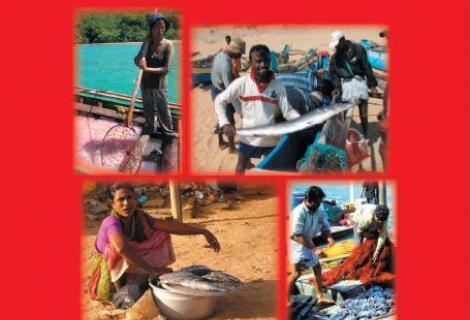
The Indian Ocean tsunami of 26th December 2004 was a disaster of unprecedented magnitude. Across the 12 affected countries in Asia and Africa, more than 230,000 people were reported dead or missing, over 2.1 million were displaced and left homeless, and millions of dollars of infrastructure was destroyed. The scale of the devastation presented enormous challenges for disaster response in the context of the evolving concept of disaster management.
This ‘People’s Report’ is not a report of an individual person or agency but is based on the work of alliances of 78 organisations and their discussions with 11,806 tsunami-affected people in fishing communities in India, the Maldives, Sri Lanka and Thailand. The focus is the lives and livelihoods of small-scale or artisanal fisher folk.
The report’s purpose is to understand and present the experiences and views of women and men in the fishing communities in relation to the tsunami response and the state of their livelihoods; their perceptions of the changes and how they respond to them. Discussions were intended to collectivise knowledge, analysis, bargaining power and voice concurrent to fisher folk claiming their rights. This documentation of the people’s perspectives is both to influence the policymakers in the post-tsunami context as well as to draw lessons on crucial issues and so inform the appropriate policies and guidelines for livelihood interventions in future disaster responses.